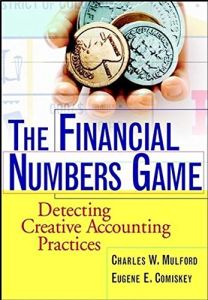Acesse a sua conta getAbstract para obter o resumo!

Acesse a sua conta getAbstract para obter o resumo!
Charles W. Mulford and Eugene E. Comiskey
The Financial Numbers Game
Detecting Creative Accounting Practices
Wiley, 2002
Sobre o que é?
Creativity is a good thing in business, but not in accounting. Here’s what to look for to be sure the numbers don’t lie.
Recommendation
A special note in the preface of this book explains that it went to press just as the Enron story was beginning to break. Three of its chapters provide almost all the information anyone would have needed to spot the problems at Enron, not to mention at the other big corporations whose scandals made recent headlines. Spotting fraud isn’t that hard. The authors provide a very useful toolkit that even a novice investor can use. Some of their coverage of the regulatory apparatus will no doubt have to be changed in future editions, as the regulations themselves keep changing, but this enlightening introduction to the nitty-gritty of skeptical financial statement analysis will have enduring utility. It’s written by accountants, so it gets a bit plodding in spots, but their anecdotes relieve the tedium and their information is invaluable. getAbstract.com recommends this reality check for every investor’s bookshelf, as well as every employee’s and every financial reporter’s. Anyone who depends on corporate performance or who uses corporate financial statements should read it.
Summary
About the Authors
Both authors are professors of accounting in the DuPree College of Management at the Georgia Institute of Technology in Atlanta. Charles W. Mulford holds the Invesco Chair and Eugene E. Comiskey holds the Callaway Chair. They also wrote Financial Warnings and Guide to Financial Reporting and Analysis.



















Comment on this summary